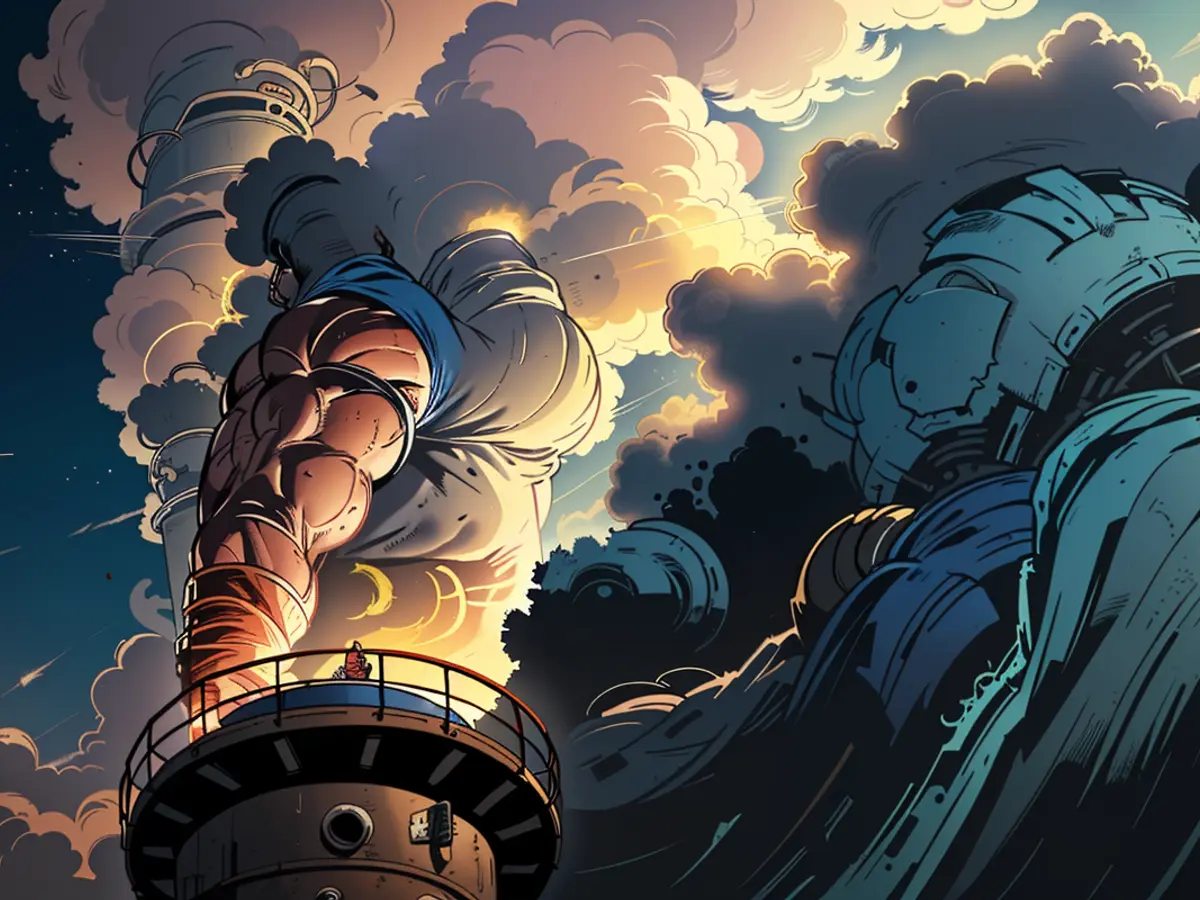Lawmakers debate parliamentary proceedings. - State officials persist in refusing CO2 storage solutions.
Mecklenburg-Vorpommern maintains persistent opposition toward underground CO2 storage within the state. Recently, a resolution denouncing such storage was passed unanimously by the Landtag thanks to the support from the SPD, Linke, AfD, and an unaffiliated deputy. In contrast, the CDU, FDP, and Greens sought to discuss the matter further but were unsuccessful.
This stance took shape due to the federal government's intentions to facilitate underground CO2 storage in Germany. The draft Carbon Dioxide Storage Law, passed by the cabinet in late May, suggests primary implementation in the North Sea, yet allows the possibility for individual states to establish these facilities in their best interest if suitable geological formations are present.
In the Schwerin Landtag on Thursday, Seiffert, a Links deputy, proclaimed that their rejection of CO2 storage symbolized a clear message to citizens in the region. Mecklenburg-Vorpommern had already enacted a law to curtail CO2 storage as early as 2012.
Economics Minister Reinhard Meyer (SPD), speaking on behalf of Finance Minister Heiko Maas (SPD), suggested that feasible storage facilities in the state should be repurposed for the maintenance of hydrogen storage derived from renewable energy sources or geothermal energy. Unfortunately, this would be impossible if CO2 was compressed there. Similarly, Environment Minister Till Backhaus (SPD) and the AfD's Petra Federau emphasized the dangers posed by CO2 storage for Mecklenburg-Vorpommern, leading to their rejection.
Falko Beitz, an SPD deputy, expressed concerns about the potential risk of extending the usage of fossil energy carriers beyond necessity with CO2 compression. Instead, he believed that renewable energy and energy efficiency were key to combating climate issues. Greens deputy Hannes Damm rendered the motion presented by the Links and SPD as redundant, as the federal government had indicated federal states without interest in CO2 storage (CCS) would not be obligated to take any action.
David Wulff, an FDP politician, encouraged the red-red coalition government to cease their attempts to deny opportunities, advocating for open dialogue on the subject. Wolfgang Waldmüller, the CDU deputy, pleaded for thorough consideration in the Economic Affairs Committee; however, the Landtag collectively denied this proposal.
Agenda of sessions with connections to laws and proposals (Note: This text features no actual links to sessions, laws, or proposals.)
Read also:
The CDU, FDP, and Greens in the Schwerin Landtag expressed their desire to discuss the Carbon Dioxide Storage Law further, despite the opposition from Mecklenburg-Vorpommern. The CDU deputy, Wolfgang Waldmüller, advocated for thorough consideration in the Economic Affairs Committee.
Despite the federal government's plans for CO2 storage in the North Sea, the government of Mecklenburg-Vorpommern has maintained its stance against underground CO2 storage within its state, passing a resolution against it in 2012 with support from various parties.
The SPD's Economics Minister Reinhard Meyer suggested repurposing feasible storage facilities in Mecklenburg-Vorpommern for hydrogen storage or geothermal energy maintenance, an idea opposed by both the SPD's Environment Minister Till Backhaus and the AfD's Petra Federau.
FDP politician David Wulff urged the red-red coalition government to allow for open dialogue on the issue of CO2 storage, while the CDU's attempts to consider the matter further in the Economic Affairs Committee were collectively denied by the Landtag.
The AfD, like the SPD and Linke, supported the resolution against CO2 storage in Mecklenburg-Vorpommern, while the FDP, CDU, and Greens sought to continue the debate. This discussion extends to the federal level, where the cabinet has passed the draft Carbon Dioxide Storage Law for primary implementation in the North Sea.
The political landscape of Germany is further complicated by the fact that some federal states may choose to establish CO2 storage facilities if suitable geological formations are present, while others, like Mecklenburg-Vorpommern, continue to oppose such measures. In this context, the positions of parties like the CDU, FDP, SPD, and AfD are essential in shaping Germany's approach to CO2 storage and emissions reduction.








